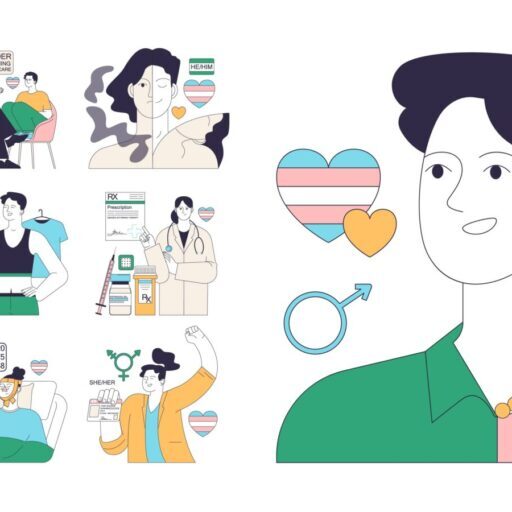7 Tips to Improve Communication in Your Relationship

It’s no secret that relationships are hard work and some relationship problems are inevitable. They require time, effort, and commitment to maintain. Even the strongest and most compatible couples will inevitably face challenges and obstacles along the way. However, what sets successful relationships apart from unsuccessful ones is the ability to navigate these relationship problems effectively.
Communication is an essential aspect of any healthy relationship. It allows partners to express their feelings, needs, and desires effectively, leading to greater understanding and connection. However, despite its importance, many partners struggle with communication, which can lead to misunderstandings, conflict, and even the breakdown of the relationship.
The good news is that communication skills can be learned and improved upon with time and effort. Whether you’re newly together or have been together for years, these tips will help you to communicate more effectively, understand each other better, address underlying relationship problems, and build a stronger, more fulfilling relationship.
1. Validate, Validate, Validate
One crucial aspect of effective communication in a relationship is the validation of your partner’s feelings. It’s not uncommon for partners to feel unheard or dismissed when they express their emotions, even when their feelings are justified. As a result, it’s important to take note of your partner’s emotions and make a conscious effort to validate them.
Although it may be tempting to dismiss your partner’s feelings as an overreaction or an attempt to start an argument, it’s crucial to understand that their feelings are real and legitimate. Even if you disagree with their perspective or the content of their message, it’s essential to acknowledge their emotions and make an effort to understand where they are coming from. This is especially true for communication around chronic relationship problems. Validation can help your partner feel seen and heard, which can strengthen your emotional connection and foster a healthier, more fulfilling relationship.
By acknowledging your partner’s emotions and validating their feelings, you can create a safe space for open communication and constructive problem-solving. When both partners feel heard and respected, it becomes easier to work together to find solutions to ongoing challenges or disagreements – even empowering you to address core relationship problems. In this way, validation can be a powerful tool for building a stronger, more resilient relationship. Ultimately, taking the time to validate your partner’s feelings can help you deepen your emotional connection and create a more satisfying, fulfilling relationship.
2. Use “I” Statements
If you’re struggling to get your partner to take your feelings into consideration, it’s important to consider how you’re expressing yourself. While your partner may have their own issues with validation, it’s essential to focus on what you can control: your communication style. By using “I” statements instead of projecting criticism onto your partner, you can express your emotions without placing blame or judgment.
When you use “I” statements, you communicate your feelings in a non-confrontational manner, which can help your partner understand the importance of the issue to you. Rather than criticizing your partner for their behavior, you express how you understand the relationship problems and suggest solutions that involve both of you. For example, instead of saying “You never listen to me,” you could say “I feel unheard when we have discussions, and I think it would help if we took turns listening to each other.”
Using “I” statements can help you communicate more effectively, which can lead to more productive and respectful conversations. When both partners feel heard and understood, it’s easier to work together to find solutions to relationship problems or disagreements. By focusing on your own feelings and needs, you create a safe and open environment for discussion, which can strengthen your emotional connection and improve the overall health of your relationship.
3. Spend Quality Time Together
You might be thinking that this isn’t a communication strategy, but effective communication relies on a foundation of emotional regulation, trust, and mutual effort.
Spending quality time with your partner is an important aspect of maintaining a healthy and fulfilling relationship. Studies have shown that partner’s who spend regular, meaningful time together are happier and more fulfilled in their relationships than those who don’t. Quality time allows you to reconnect with your partner and strengthen your emotional bond, leading to greater intimacy and understanding.
Even if you and your partner lead busy lives, it’s important to make time for each other on a regular basis. Even just a few minutes of shared activity or conversation each day can help to build a strong foundation for your relationship. This might mean going for a walk together, cooking a meal together, or simply sitting down for a chat after work.
By spending quality time together, you can reignite the chemistry and connection you felt during your early days of dating. You’ll have the opportunity to let your guard down and interact in a relaxed, open manner. This can lead to a deeper sense of understanding and appreciation for each other, which can in turn improve the overall health and satisfaction of your relationship.
In short, spending quality time with your partner is an investment in your personal well-being and the health of your relationship. By making an effort to prioritize time together, you can build a stronger, more resilient partnership that can weather even the hardest relationship problems that may come your way.
4. Use Rituals to Create Meaning
Like quality time, rituals are an important aspect of building depth and intimacy in relationships. These can be small daily habits or larger, more significant events, such as weekly date nights or annual vacations. By establishing rituals in your relationship, you create a sense of predictability and routine, which can help to strengthen your emotional connection and capacity for communication.
Rituals can also serve as an opportunity for partners to reconnect and deepen their bond. For example, a weekly date night can provide a chance for couples to spend quality time together and engage in activities that they both enjoy. Similarly, a daily morning routine of sharing coffee or tea can be a moment of connection and reflection to start the day off right.
By incorporating rituals into your relationship, you can create a shared sense of meaning and purpose. This can be particularly valuable during challenging conversations. You can even use your rituals in the midst of difficult, especially lengthy, conversations to provide a sense of stability and grounding.
5. Practice the “6 Second Kiss”
The “6 second kiss” is a technique developed by relationship expert Dr. John Gottman as a way for couples to deepen their physical and emotional connection. The idea is to share a passionate, six-second kiss with your partner every day, ideally as soon as you see each other in the morning or when you are reunited after a period of time apart.
According to Gottman, the “6 second kiss” is a powerful way to foster intimacy and connection in a relationship. By engaging in this simple act of physical affection on a regular basis, partners can encourage the release of the neurochemical oxytocin and improve bonding. Stronger bonds are lubricants for effective communication.
6. Express Appreciation
Showing appreciation to your partner is a simple but powerful way to boost marital happiness and strengthen your emotional connection. Research suggests that contempt in relationships can lead to communication issues, which can then exacerbate dissatisfaction. By taking steps to boost mutual satisfaction, such as expressing appreciation, couples can improve their communication and overall relationship satisfaction.
Expressing appreciation doesn’t have to be a grand gesture. A small statement of thanks for doing the dishes or a compliment for a job well done can go a long way toward putting a smile on your partner’s face. Make an effort to recognize something that your partner does to improve your relationship or benefit your relationship each day, and say “thank you” as often as possible.
7. Play Together
Playfulness is an often-overlooked aspect of relationships, but it can be incredibly important for encouraging communication and fostering a strong emotional connection between partners. By incorporating playfulness into your relationship, you create an atmosphere of fun and lightheartedness that can help to alleviate stress and tension.
Playful activities such as game nights, sports, or even just goofing around together can provide a much-needed break from the daily routine and allow you to connect with your partner on a deeper level. Engaging in these activities together can also help to improve communication, as you learn to listen to each other’s perspectives and communicate effectively in a relaxed, low-pressure environment. What are you waiting for, dance in the kitchen!
Despite the best efforts, some relationship problems are just too tangled to solve alone. If you find that you just can’t seem to correct the communication patterns in your relationship, consider an individual therapist to better understand your experience of the relationship and improve your skillfulness or a couples counselor to work with you and your partner(s). Schedule an appointment with one of therapists today!
This blog is made for informational and educational purposes only. It is not medical advice.
The information in this blog is not intended to (1) replace a one-on-one relationship with a qualified licensed health care provider, (2) create or establish a provider-patient relationship, or (3) create a duty for us to follow up with you.



